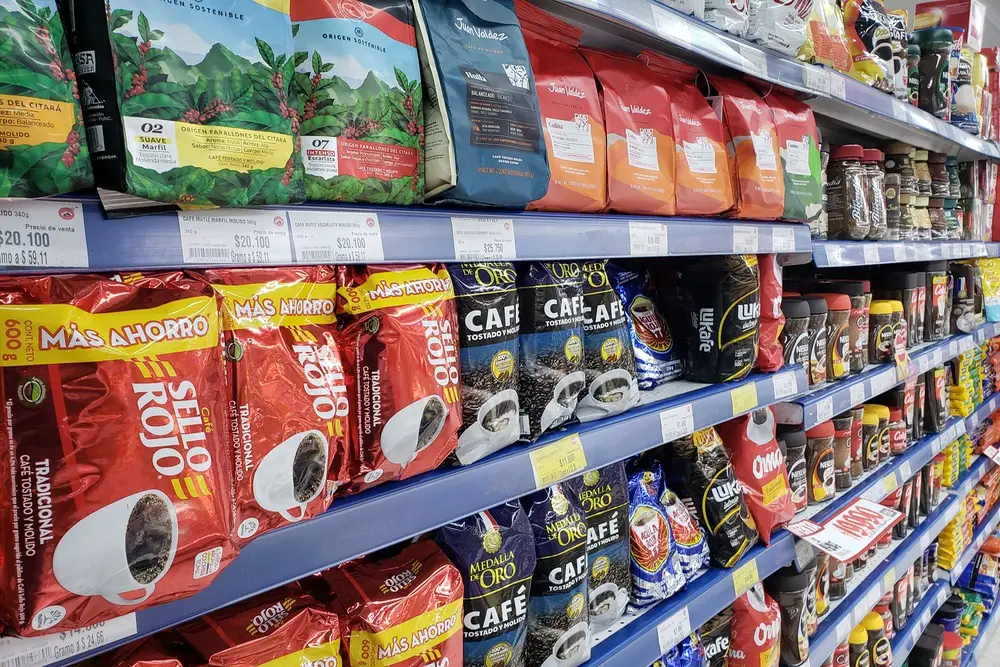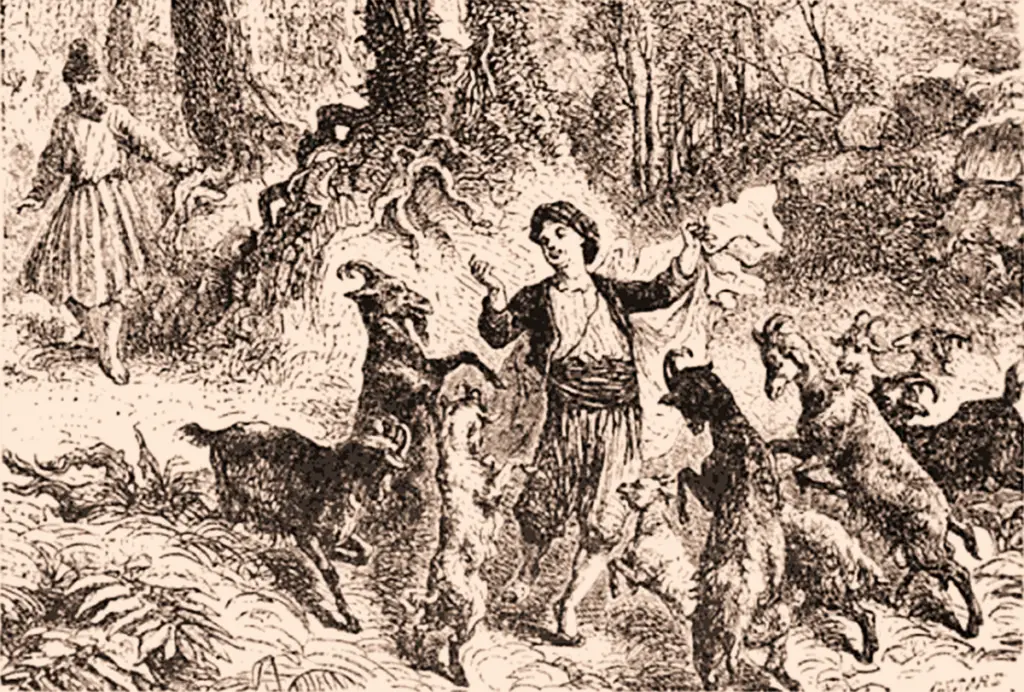Coffee is such an important and culturally rooted drink that it is taken very seriously. Making it is not just mixing hot water with ground coffee beans. Behind this, there is an art that perhaps few know, but that has played a fundamental role in improving and increasing the quality of coffee drunk around the world.
So, have you ever wondered what’s behind the person who makes it and how this field works? Surely yes, that’s why this time we’re going to talk about the world of baristas and what a barista does. Let’s start!
Table of Contents
What is a barista?
Barismo can be considered as the art of correctly making various drinks based on espresso. It is a field that has been gaining a lot of strength lately due to the importance and popularization of coffee. The person who practices barismo is the barista.
The term barista is actually an Italian word meaning bartender. It is also known as a barman or, according to the literal translation into Spanish, waiter.
This term was born in Italy and was originally attributed to the person behind the counter serving customers. This person was in charge of serving various drinks, both hot and cold. Coffee was one of these, though it wasn’t the only thing. A barista also made alcoholic or non-alcoholic drinks and offered snacks.
As coffee was gaining popularity, the term was narrowed down to what we know today. Later, the coffee shops began to name the people who made the coffee “baristas”. Then there was its generalization and expansion beyond Italy.
Possibly, one of the factors that contributed to the importance of the term was the fact that it came from Italy. Remember that this European country is not only the cradle of iconic coffee brews as the espresso but also the place where coffee makers such as the Moka pot and the espresso machine were invented.
What does a barista do?
The barista is to coffee what the sommelier is to wine. It is the person who is responsible for making and serving with technique and expertise drinks made from coffee. They work in coffee shops or establishments that offer coffee.
The barista not only has a great deal of theoretical knowledge about coffee and its brewing but also practical knowledge. That is why they are also experts in handling various coffee machines that are used in the brewing process.
Although it may sound like an uncomplicated work, in reality, it is quite the opposite. To better understand the statement above, let’s learn about the knowledge and functions of the barista:
- They have knowledge about the different roasting degrees of coffee. Thus, they are able to perceive and differentiate the aromas of the bean. Thanks to this they can better choose the coffee according to each brewing method.
- They know what degrees of grinding coffee beans have and how to grind them properly. In this way, they are aware of what type of grinding is needed for each brewing.
- They have the ability to properly make an espresso, base drink of many coffee recipes.
- In addition to espresso, they also know how to make Americano, cappuccino, latte, largo, mocha, and many more variations.
- They have the knowledge and practice to operate the different coffee machines. Since the degree of difficulty of each type of coffee maker varies, it is not an easy task. That’s why the barista is trained to handle them properly.
- They know how to use others fittings required in the making of drinks with coffee. Examples of these are coffee grinders and milk frothers.
- Just as they know how to handle coffee machines and accessories, they also have knowledge about their proper maintenance, care, and cleaning.
- They master the technique of latte art.
- They have knowledge about inventory and personnel management, orders, customer service, problem solving in their environment, etc.
How do you become a barista?
Currently, being a barista is not considered an official profession. However, it is certainly a real job performed by many people around the world. You can be a barista in two ways: through schools and courses, or empirical training. Let’s take a look at each.
Barista schools and courses
Today, thanks to the importance and popularity of coffee, we can find more and more schools that offer barista courses. Its duration may vary depending on the school or institution that teaches it. There are courses that can last from 22 hours up to a year. These are usually divided into modules in which you learn:
- Tasks and duties of the barista.
- Coffee basics. They learn everything related to the cultivation, production, and commercialization of coffee. Also its biochemical composition, properties of beans, and coffee varieties.
- Techniques for making different coffee drinks and latte art.
- The right way to roast and grind coffee. Also, the tasting or cupping process.
- Handling of different coffee machines, accessories, and equipment. They also learn how their maintenance and cleaning should be.
- How to adapt and prepare the workstation.
- Customer service.
Barista courses can be free or at a cost, depending on the location. It is also important to mention that some of these are taught virtually, and others are totally face-to-face. At the end of each, a certification is usually obtained.
The fact that the courses can be short or long and face-to-face or virtual, also allows the interested person to take several of these. This not only complements and updates your knowledge but also allows you to practice more and improve your skills.
Empirical training
Originally, baristas gained their knowledge empirically when they started working in coffee shops. In this way, they had a “teacher”, who was an expert employee who taught them everything related to work. Today, it is also possible to become a good barista after many years of experience, without taking a course.
Many things can be learned this way, keeping in mind that you are constantly practicing. Having a mentor to guide the process also helps to make the learning process practical, quick and to learn more hacks.
Usually, all the topics related to managing the inventory of a cafe and administrative aspects are learned after gaining experience in that place. However, in some academies, they can also touch on these subjects.
Barista championships
Just as there are competitions and contests that reward the quality of coffee, there are also to recognize the skills of the barista. These events take place both nationally and internationally.
One of the most important competitions is the World Barista Championship. It is held every year in a different city by the World Coffee Events organization. This entity was founded by the Specialty Coffee Association (SCA). It is the official responsible for organizing and carrying out all events related to the coffee community worldwide.
The World Barista Championship is one such event and brings together baristas from around the world to prove their skills through a series of tests. It lasts 2 days in total and 3 rounds are made.
In each round, each participant must make a presentation in which they make 12 drinks in 15 minutes: 4 espressos, 4 drinks with milk, and 4 special drinks (a non-alcoholic cocktail based on espresso). Each drink is presented before 4 judges who evaluate aspects such as the taste, aroma, and balance of the cup, the technique, the process, and the presentation. In the end, the contestant with the highest score is the winner.
In order to participate in this contest, a national competition is held in each country. In this, a barista is chosen to represent the country in the World Barista Championship. In the case of Colombia, the Colombian Barista Championship is held every year. It is an event endorsed by the same World Barista Championship and it also consists of 3 rounds and 12 drinks, but with 7 judges.
Conclusions
Baristas are the artists behind this work of art called coffee. In every delicious cup of coffee we enjoy daily, there is a whole process of brewing carried out by an expert. Making coffee is not complicated, but making it properly and with the best technique is.
As we were able to discover today, the barista not only has the knowledge on how to make espresso but also about everything that involves using and manipulating a good bean. It is thanks to these sensory skills polished over time that they can make the best cups. Not to mention the fact that they are experts in handling different machines so that they can bring out the best aromas and flavors to the fullest.
Therefore, although it is not an “official” profession, it is definitely one that has gained more relevance today. And of course, is fundamental in the world of coffee.


